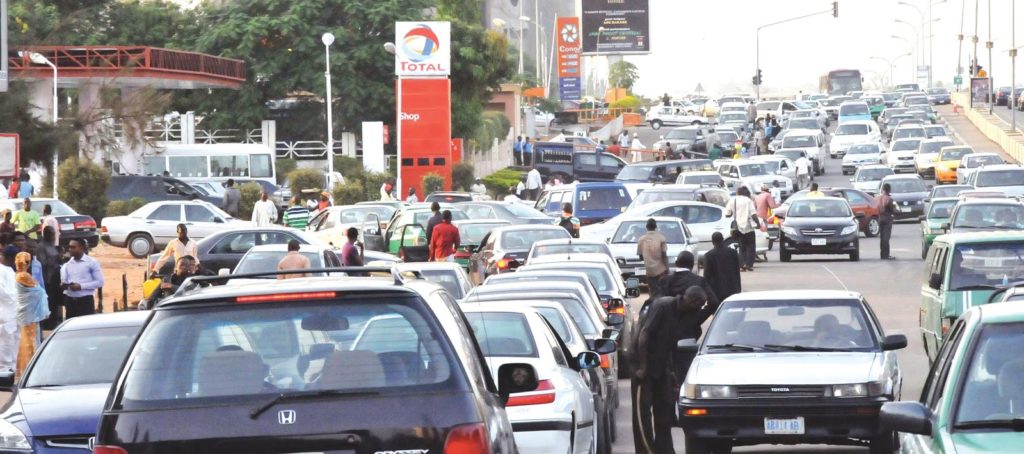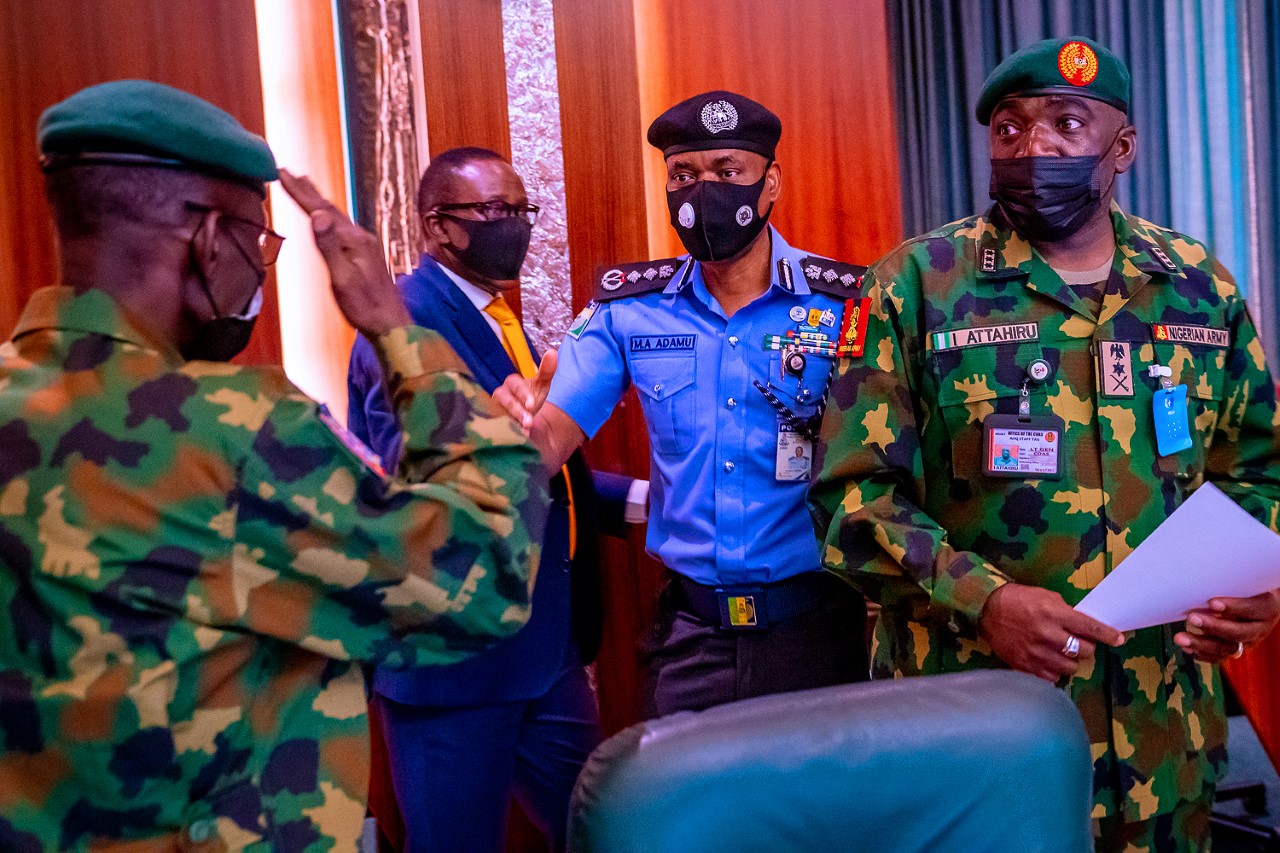
Tanko Mohammed
With increasing unemployment and inflation rising to a four-year high of 17 percent, Nigeria is meeting with its 36 governors and organised labour to consider another increase in pump price of petrol to free $300 million monthly subsidy.
The plan increase in pump price, the third in 2021, would reduce federal government’s expenditure and curtail a further dip in Nigeria’s foreign reserves which now stands at $32 billion, barely enough for six months imports.
But the Nigeria Labour Congress (NLC), an umbrella body of 89 national trade unions, has kicked against the plan to remove subsidy on petroleum products, arguing that it would cause a spiral in inflation as well as further swell unemployment which currently stands at 23 million.
The National Bureau of Statistics (NBS) last week released a report which puts year-on-year inflation at 17.33 percent in February after 16.47 percent in January, blaming the increases for almost 10 consecutive months on cost of food.
It also said Nigeria’s unemployment rate rose to 33.3 percent in the three months through December, up from 27.1 percent in the second quarter of 2020, the last period the agency released labour-force statistics.
Nigeria, Africa’s largest crude producer, has begun negotiation with governors and the labour to get the nod to phase out subsidies on petroleum products which it said was costing almost $300 million monthly.
It produces 1.6 million barrels of crude a day, the Nigerian National Petroleum Corporation (NNPC) said but presently imports virtually all its fuel because of its inability to refine to meet the need of citizens.
The Group Managing Director of NNPC, Mr Mele Kyari, said the government would, for now, continue “bearing the burden of price differentials between the landing cost and pump price,” until the issue was resolved.
Kyari explained that while the actual cost of importation and handling charges amount to almost $0.55 per litre, the government is selling at $0.33 per litre, explaining that the NNPC could no longer afford to bear the cost.
He said that the sooner or later Nigerians would have to pay the actual cost for the petrol.
The Minister of State for Petroleum Resources, Mr Timipre Sylva, confirmed that NNPC absorbs the cost differential which is recorded in its financial books.
He said on March 26, 2021 that the federal government had pushed back on insinuations that it had increased the pump price of petrol.
Sylva said the government had not given such approval, adding that there was no way fuel pump price increase could have been effected without the knowledge of either the President Muhammadu Buhari or the minister.
He maintained that it was unthinkable to raise the price of the product when negotiations were going on with organised labour and urged the general public to disregard such reports.
The Minister of Labour and Employment, Mr Chris Ngige, who is leading the labour to the critical stakeholders’ negotiation, said that final decision on pump price increase will be taken by the states governors, the labour and federal government.
The issue, he said, had been discussed at the National Economic Council, NEC, and so everybody is involved because we find ourselves in dire straits, he said.
The President of NLC, Mr Ayuba Wabba, on March 27, 2021 in Abuja warned that the congress would embark on nationwide strike if there is an another increase in pump price.
“We will mobilize to the streets, across the country, ordinary and helpless Nigerians to whom they owe the duty of protection; shut Shut down all banks, public and private offices as well as markets; and commence indefinite nationwide action.
Nigeria Labour Congress assures Nigeria that he will put a stop to the unilateral increase in prices of petroleum products by the government
They urged Nigerians to stockpile food ahead of the protest against fuel subsidy removal.
The labour group reported that it would fight any pump price that is effected without consultation with labour.
Buhari, who came into power on May 29, 2015, met the pump price at N87 and had since effected increases doubling the price he inherited.
It is envisaged that Nigerians would wake up to new petrol price before the end of April, 2021.













